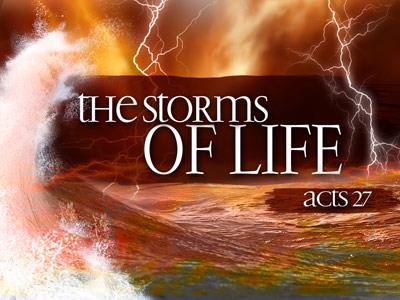-
Jesus Gives Sight, To Those Who Want It (John 9:1-41) Series
Contributed by Garrett Tyson on Feb 8, 2022 (message contributor)
Summary: Jesus gives physical sight, and spiritual sight. By chapter's end, the only blind ones left are the Pharisees. Have to be open-minded, and know what you don't know.
At this point in the gospel of John, some of you are maybe feeling a little confused. John is not a very easy book.
Jesus' words seem complicated-- they are "from above," as he is from above, and we struggle to climb up, and view things from above, and understand them from above.
If this is you, my hope is that you'll find today's passage, John 9, ridiculously helpful. You'll walk away understanding the gospel of John. It will pretty much all make sense.
Our story today, at the surface level, is about a man born blind, who Jesus healed of his blindness. But at a higher level, our story is not just about physical blindness. The story is also about spiritual sight. How is it, that people come to understand who Jesus really is? How is it that people come to give a full, mature allegiance to Jesus?
Our story is built in seven different scenes, kind of like a play.
In the first scene, Jesus heals a man born blind. But the focus of our story isn't really on physical sight. It's on spiritual sight-- who can see Jesus clearly, for who he actually is? And who is actually blind?
---------------------------------------------------
Note: the structure, and some of the language, that follows is adapted in part from a sermon by Ed Neufeld that I can no longer find online (their church's website was updated, and it hasn't been relisted). He seemingly built his sermon, in part, on Brendan Byrne's commentary on John).
------------------------------------------------------
Scene 1: Jesus heals a man born blind (9:1-7)
Verses 1-2:
(1) And, going away, he saw a man blind from birth,
(2) and they asked him-- his disciples-- saying,
"Rabbi, who sinned?
This man, or his parents?"
The disciples assumed that if there was a tragedy like this, blindness, then it was God's judgment on someone because of sin. No one should have to be blind. But if a person is born blind, it's hard to figure out who sinned.
Can unborn babies commit sins so vile they deserve to be blinded? Probably not, right? So it must be the parents then. But this too seems unfair. Children shouldn't be punished for their children's sin. And Ezekiel 18 specifically rejects the idea, that God will punish people anymore for their parents' sins. The soul who sins, is the soul who will die. No longer do parents eat sour grapes, and set their children's teeth on edge (Ezekiel 18:1-2). So, just as an aside, any time you hear people talking about "generational sin," you can safely ignore them. "The soul who sins, is the soul he dies."
So where does that leave us? Where does that leave the disciples? They know there is no good reason for why someone would be blind from birth. And so they ask the logical question here.
In verse 3, we find Jesus' answer. Now, this can be understood in two very different ways, depending on how we punctuate it. It's a little tricky, because originally, in Greek, there are no commas or periods. That's something we add, to help us make sense of it.
So option one goes like this (make this part of the handout):
(3) He answered-- Jesus--
"Neither this man sinned, nor his parents, (comma)
but in order that they would be revealed-- the works of God in/through him." (period)
We must work the works of the One Sending me, while day, it is."
According to this option, the man was blind from birth so that God's works would be revealed through him. What you are about to see, is a sign of God's power. And this man was born blind, so that this could happen. God did this for his own glory. English translations all seem to take this option, although some soften it in one way or another.
Option two goes like this (h/t Charles Talbert, who gets it right I think):
(3) He answered-- Jesus--
"Neither this man sinned, nor his parents. (Period.)
But in order that they would be revealed-- the works of God in/through him, (Comma) we must work the works of the One Sending me, while day, it is."
With option two, the purpose clause is fronted, pointing forward, to make that the focus. With option two, Jesus is trying to redirect his disciples' attention, and help them focus on what matters. It doesn't matter, really, why the man is blind. The question should be, what are we going to do about it.
And notice, how Jesus puts this. Who works the works of God? Jesus says, "we" do. Jesus is calling his disciples to join him here, in doing the works of God. The works of God-- the healings, and signs, and wonders-- are not just something Jesus does. They are something the disciples also do. And so, what we see here, is a commissioning-- an invitation, to join Jesus in doing God's works.

 Sermon Central
Sermon Central



